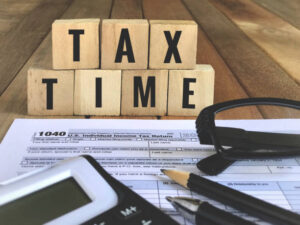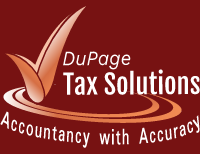
Tax and Accounting Services
About DuPage Tax Solutions
DuPage Tax Solutions is located in Naperville, IL. Our clients are mostly residents and small businesses within the Chicago metropolitan area – DuPage, Cook, Will, and Lake counties. Our remote work capabilities allowed us to extend our services nationwide. Today, we pride ourselves in having clients from all 50 states. Our virtual services are fast, easy, and convenient. Clients submit and review documents electronically through our secured online portal.
Home Office Tax Rules to Know

Many self-employed individuals and small business owners can claim deductions for using part of their home for business. Here are the IRS rules for the home office deduction.
Home » Home Office Tax Rules to Know
Who Qualifies for the Home Office Deduction?
You may deduct eligible expenses if you meet at least one of the following conditions:
- The space is your principal place of business.
- You meet with clients or customers there during regular business activity.
- You use it for administrative or management tasks, and you have no other fixed location for those tasks.
- You work from a separate structure not attached to your home that you use regularly and exclusively for your business.
Meeting the IRS Requirements
The IRS applies two main tests:
- Exclusive use: A clearly defined area of your home must be used only for business.
- Regular use: You must use the space consistently—not just occasionally—for business purposes.
Incidental or occasional work use does not qualify.
Determining Your Main Business Location
The IRS considers your home to be your principal place of business if you meet both criteria:
- You spend more business-related time there than anywhere else.
- The most important income-producing activities happen in that space.
What Employees Should Know
Since 2018, employees generally cannot deduct expenses for working from home due to the suspension of unreimbursed employee expense deductions under tax reform legislation passed in 2017.
Previously, employees could qualify if the home office was:
- For the convenience of the employer (not just for personal comfort).
- Not in a space of the home rented to the employer and not the same space for performing services for the employer as an employee.
Categorizing Expenses
Expenses related to business use of your home typically fall into three groups:
- Direct costs: Specific to the work area (e.g., second phone lines, office-specific repairs).
- Indirect costs: Apply to the whole home and must be allocated (e.g., rent, utilities, mortgage interest, insurance).
- Non-deductible expenses: Related to personal use areas (e.g., mowing the lawn, repainting your bedroom).

Deduction Limits and Carryovers
If your business income from home use is greater than or equal to related expenses, you can deduct the full amount. If not, some costs (such as utilities or depreciation) may be limited.
You can carry over excess deductions to the next year, which are also subject to deduction limits in that year.
Simplified Home Office Deduction
Since 2013, the IRS has a simplified option: deduct up to $5 per square foot for up to 300 square feet, totaling $1,500.
With this method:
- You skip depreciation calculations.
- You can still deduct mortgage interest and property taxes on Schedule A.
- You must still meet the “exclusive and regular use” requirement.
- Other non-home business expenses remain fully deductible.
Tax Benefits Beyond the Basics
Claiming a deduction for business use of your home can convert part of your rent, utilities, and insurance into legitimate business write-offs.
Additionally:
- You can deduct business mileage starting from your home-based work area.
- Equipment and furniture may qualify for Section 179 expensing or depreciation.
What Happens When You Sell Your Home?
If you owned and lived in the home for two years during the five years leading up to the sale, you can qualify for the capital gains exclusion of $250,000 (single) or $500,000 (married filing jointly).
If your business area is part of your primary residence (like a room used for admin work), you do not need to allocate gain upon sale between the business and personal use of the home.
However, if you use a separate structure (like a detached studio), different rules apply. The tax outcome depends on whether the space meets the criteria for capital gains exclusion and whether there was business use in the year of sale.
Need Help Claiming the Deduction?
If you’re self-employed or running a business from home, you may benefit from valuable deductions—but only if you meet the requirements. Form 8829 is used to report these expenses.
Want to make sure you’re taking full advantage of what the IRS allows? Contact DuPage Tax Solutions today. Our experienced team will help you determine your eligibility and maximize your savings.
Topic no. 509, Business use of Home. Internal Revenue Service. https://www.irs.gov/taxtopics/tc509
You May Also Like These


Turn Travel into a Tax Deduction

Section 179 Deduction

Benefits of Hiring a Tax Professional
Ready to Take Control of Your Finances?
Contact Info
Ph. (630) 909 9700
Email: [email protected]
Mail address:
1552 South Route 59 #1037
Naperville, IL 60564
Business Hours
Mon: 11 am – 7 pm
Tue: 11 am – 7 pm
Wed: 11 am – 7 pm
Thu: 11 am – 7 pm
Fri: 11 am – 7 pm
Sat: 12 pm – 5 pm
Sun: CLOSED
Helpful Links
© 2024 DuPage Tax Solutions | Site Map | Privacy Policy | Disclaimer
